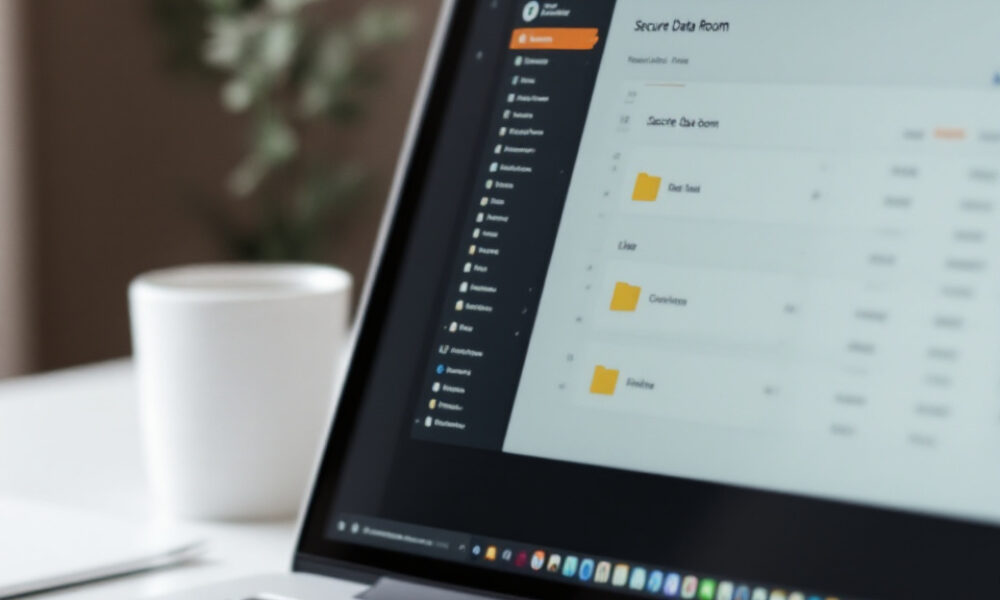
Financial Industry
-
Mergers & Acquisitions (M&A) and Due Diligence
During M&A transactions or due diligence processes, financial institutions exchange vast amounts of sensitive documents containing customer information, financial data, and transaction records. AI intelligent masking automatically identifies and hides sensitive details (e.g., ID numbers, bank card information, account balances) while preserving data structure and format for analysis. For example, in inter-bank M&A projects, AI masking swiftly processes 海量 (massive) customer credit data shared via VDRs, ensuring privacy protection during information sharing, complying with regulations, and accelerating M&A progress. -
Risk Management and Compliance Reporting
Financial institutions must submit compliance reports to regulators, often containing sensitive data. AI intelligent masking processes such information to generate regulatory-compliant report versions. In internal risk management, it masks risk assessment data to maintain analytical accuracy while protecting data subjects’ privacy. For instance, securities firms use AI masking to hide customer personal information in transaction behavior analysis reports submitted to regulators, mitigating compliance risks.
Healthcare Sector
-
Clinical Research and Medical Data Sharing
Medical research requires extensive patient records for clinical trials and disease studies, which include sensitive information (e.g., names, ID numbers, diagnoses, treatment plans). AI intelligent masking precisely identifies and masks such data, enabling secure sharing among research institutions, pharmaceutical companies, and healthcare providers. For example, in multi-center clinical trials, hospitals upload patient medical records to a VDR; after AI masking, researchers access de-identified data for analysis, advancing medical research while safeguarding patient privacy. -
Telemedicine and Electronic Medical Record (EMR) Management
With the rise of telemedicine, EMRs face privacy risks during transmission and storage. AI intelligent masking in EMR systems real-time masks patient-sensitive information, ensuring security during remote diagnosis, storage, and sharing. For example, when a patient consults a doctor via a telemedicine platform, their medical record’s sensitive data is masked by AI before reaching the doctor, preventing privacy leaks.
Legal and Compliance Affairs
-
Law Firms and Legal Document Processing
Lawyers handle legal documents with client privacy and trade secrets. When sharing files with clients, partners, or courts, sensitive information must be masked. AI intelligent masking tools quickly identify and redact sensitive content (e.g., commercial clauses, personal information in contracts). For example, in commercial litigation, law firms use VDRs to share case files with clients and co-counsels, leveraging AI masking to protect sensitive information and enhance efficiency while safeguarding client rights. -
Government Agencies and Regulatory Compliance
Government bodies must protect sensitive information (e.g., personal privacy, national security) in public data and policy documents. AI intelligent masking helps process such files to ensure compliance with regulations during information disclosure and sharing. For instance, when the human resources department shares employment data with other agencies, AI masking hides personal names and ID numbers while retaining statistical value, balancing data sharing and compliance.
Enterprise Daily Operations and Data Collaboration
-
Internal Data Sharing and Collaboration
When large enterprises share data across departments, sensitive information (e.g., employee records, business strategies, customer data) may be involved. AI intelligent masking automatically masks shared data in internal VDRs to secure cross-departmental data flow. For example, when the marketing department shares customer needs with R&D, AI masking hides customer identities and sensitive business info, fostering collaboration while protecting core data. -
Supply Chain and Partner Data Interaction
Enterprises need to protect privacy when exchanging data with supply chain partners (e.g., supplier cost data, sensitive info in customer orders). AI intelligent masking processes interactive data to prevent leaks to unauthorized parties. For example, manufacturers share production plans and orders with component suppliers via AI-masked data, safeguarding trade secrets and supply chain security.
User Groups Suitable for AI-Powered Intelligent Data Masking
-
Large Enterprises and Multinational Corporations
These entities manage massive data assets across diverse businesses and regions, facing complex data processing needs and strict regulations (e.g., GDPR, China’s Data Security Law). AI masking enables efficient sensitive data handling, ensures global compliance, reduces breach risks, and protects brand reputation. For example, a multinational financial group uses AI masking to comply with regional data protection laws when sharing customer and financial data across global branches, enabling secure data collaboration. -
Financial Institutions and Investment Firms
These organizations handle highly sensitive financial data (e.g., customer funds, investment portfolios), where security directly impacts client trust and operations. AI masking helps protect data during investment analysis, risk management, and compliance reporting, meeting regulatory requirements and enhancing efficiency. For instance, investment banks use AI masking to process client financial data during valuation and M&A consulting, ensuring secure data flow within teams and with external clients. -
Healthcare and Life Sciences Organizations
These entities manage patient medical and biological sample data, subject to strict regulations (e.g., HIPAA). AI masking protects patient privacy during clinical research and data sharing, facilitates medical innovation, and avoids legal risks from data leaks. For example, pharmaceutical companies use VDRs to share clinical trial data with hospitals, leveraging AI masking to ensure safety and compliance, accelerating new drug development. -
Law Firms and Legal Professionals
Legal practices involve frequent exposure to client privacy and trade secrets, requiring strict protection during communication, case collaboration, and document submission. AI masking tools help lawyers quickly and accurately redact legal files, improving efficiency, safeguarding client rights, and preventing disputes from information leaks. For example, large law firms use AI masking to process contracts and evidence in complex commercial litigation, ensuring sensitive info security in legal proceedings. -
Government Agencies and Public Institutions
These bodies manage vast citizen data and public affairs information, where security and privacy are critical. AI masking enables sensitive info protection during data openness, government collaboration, and public service delivery, meeting regulatory demands and enhancing public trust. For instance, tax authorities use AI masking to hide taxpayer-sensitive data when sharing with other agencies, balancing data exchange and privacy protection for public data security.
bestCoffer AI Redaction: Securely Share Your Confidential Files
Get in touch with bestCoffer to find out how we can support your business.